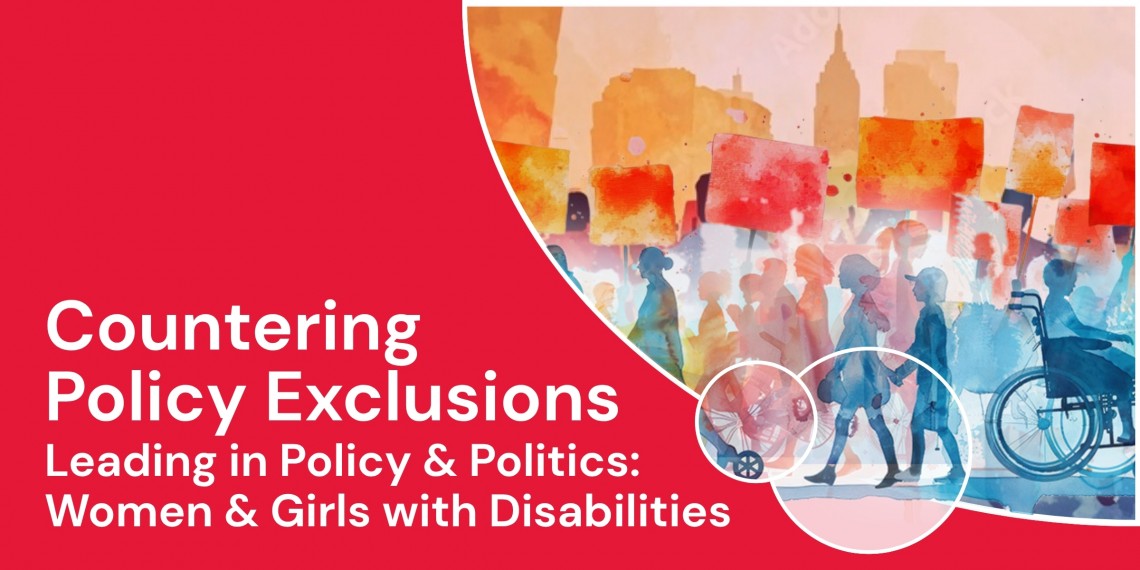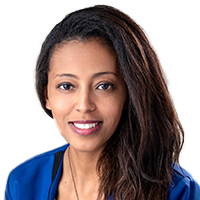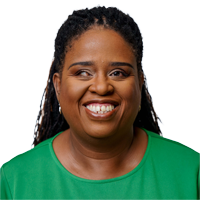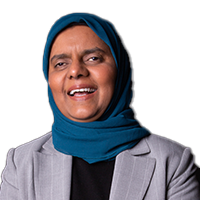This is a hybrid event.
Virtual: Zoom – please note the time is in Eastern Time. The Zoom link will be provided before the event to those registered.
In-Person: Mackinnon Building, Room 019 | The Interdisciplinary Hub
If you have any questions, email lww@uoguelph.ca [2]

One in five women around the world live with disability, yet barriers continue to affect their equitable participation in society as well as in political processes and decision making. Data from UN Women in 2017 show that women with disabilities are still significantly underrepresented in government decision making, in national organizations of persons with disabilities, and in national institutions or machinery for gender equality. In addition, few women lead organizations of persons with disabilities.
This diverse panel of experts will discuss how women, girls, and gender-diverse people with disabilities are providing leadership in policy and politics, and what helps and hinders their leadership.
Event Host:

Hiwot Mekuanent
Hiwot Mekuanent (she/her) holds a master's degree in Human Rights Law from Addis Ababa University, Ethiopia, and earned her PhD in Law from Queen's University, where she researched the participation of persons with disabilities in Ethiopia's law-making process. Her primary area of interest is disability rights, having dedicated both her undergraduate and postgraduate theses to this field.
Hiwot previously served as the Director of the Disability Service Center at the University of Gondar and has actively provided free legal aid to marginalized communities, including women, children, and persons with disabilities.
During her time at Queen's, Hiwot served as a committee member for the Built Environment Advisory Group and volunteered with ABLE2 (Ability Benevolence Liberty Empowered). She is currently a postdoctoral researcher at the Live Work Well Research Centre under the EDID-GHDI project [3], focusing on barriers to leadership for women with disabilities.
Panelists:

Kerryann Ifill
The Most Honourable Kerryann Ifill FB (she/her) is a trailblazer in leadership, advocacy, and inclusion. Losing her sight at the age of five, she became a symbol of resilience, first appearing on the 10¢ stamp during the International Year of the Disabled. At 14, she was the first totally blind student at Combermere Secondary School, later earning qualifications from the University of the West Indies, Durham Business School, and Erdiston Teacher's Training College.
For over a decade, Kerryann championed the rights of persons with disabilities through the Barbados Council for the Disabled, leading advocacy, research, and assistive technology initiatives. Appointed to the Senate in 2008, she became its youngest President in 2012—and the first woman and person with a disability to hold the post.
Kerryann serves globally as Vice Chair of the Commonwealth Disabled People's Forum, Chair of the CARICOM Advisory Panel on Disabilities, Director-at-Large for the World Blind Union North America–Caribbean Region, Vice President of the Barbados Council for the Disabled, and Public Relations Officer for the National United Society of the Blind Barbados.
Since 2019, Kerryann has served with the Rotary Club of Barbados South, advancing projects in inclusion and empowerment. Her community service also includes over 25 years of ministry and music with her church band.
Now an author and keynote speaker, Kerryann shares powerful messages on resilience, leadership, and equity. Honoured with the Order of the Freedom of Barbados (2023) and the Anthony N. Sabga Award for Caribbean Excellence (2024), she continues to inspire change across the world.

Rabia Khedr
Rabia Khedr (she/her) is dedicated to equity and justice for persons with disabilities, women, and diverse communities. Rabia most recently served as a Director on the Accessibility Standards Canada board and a Commissioner on the Ontario Human Rights Commission.
Rabia sits on the Minister's Disability Advisory Group. She is the National Director of Disability Without Poverty and CEO of DEEN Support Services. A founder of Race and Disability Canada, she is also a board member of the Muslim Council of Peel and the Federation of Muslim Women.
A motivational speaker and documentary commentator, Rabia draws on her lived experience of being blind and advocating for siblings with intellectual disabilities.
Rabia has received numerous awards for her humanitarian services, including a Queen Elizabeth II Diamond Jubilee Medal, the Daniel G. Hill Human Rights Award, and the King Charles III Coronation Medal. Rabia holds a Bachelor of Arts (University of Toronto) and a Master of Arts (York University).

Jutta Treviranus
Jutta Treviranus (she/her) is the Director of the Inclusive Design Research Centre (IDRC) [4] and professor in the faculty of Design at OCAD University. Jutta established the IDRC in 1993 as the nexus of a growing global community that proactively works to ensure that our digitally transformed and globally connected society is designed inclusively. Jutta also founded an innovative graduate program in inclusive design.
Jutta and her team developed a co-research methodology that has been adopted by organizations internationally. Jutta has initiated and supported many research networks with and by communities experiencing exclusion. She was recognized for her work in AI by Women in AI [5] and Women in AI Ethics [6], and is the chair of the Accessible and Equitable Artificial Intelligence standards committee [7] for the Accessible Canada Act.

Margaux Wosk
Margaux Wosk (they/them) is an Autistic, neurodivergent, and disabled artist, designer, and advocate based in British Columbia, Canada. As the President of BC People First, Margaux is a dedicated self-advocate working to ensure that the voices of people with lived experience are heard.
Margaux has spoken on Parliament Hill and at national conferences to advance accessibility and disability awareness. They have also led programs that supported disabled creatives in learning about business, marketing, and social media. Their mission is to make the world more accessible, compassionate, and inclusive through thoughtful design, advocacy, and education.
Margaux's design work has been featured in various media outlets, and through their brand, Retrophiliac, they create meaningful designs that promote disability pride, neurodiversity, and inclusion.
This event is the fourth in a series co-hosted by the Live Work Well Research Centre [8] and Dr. Leah Levac's Canada Research Chair in Critical Community Engagement and Public Policy. This event is also co-hosted by the Guelph Institute of Development Studies.